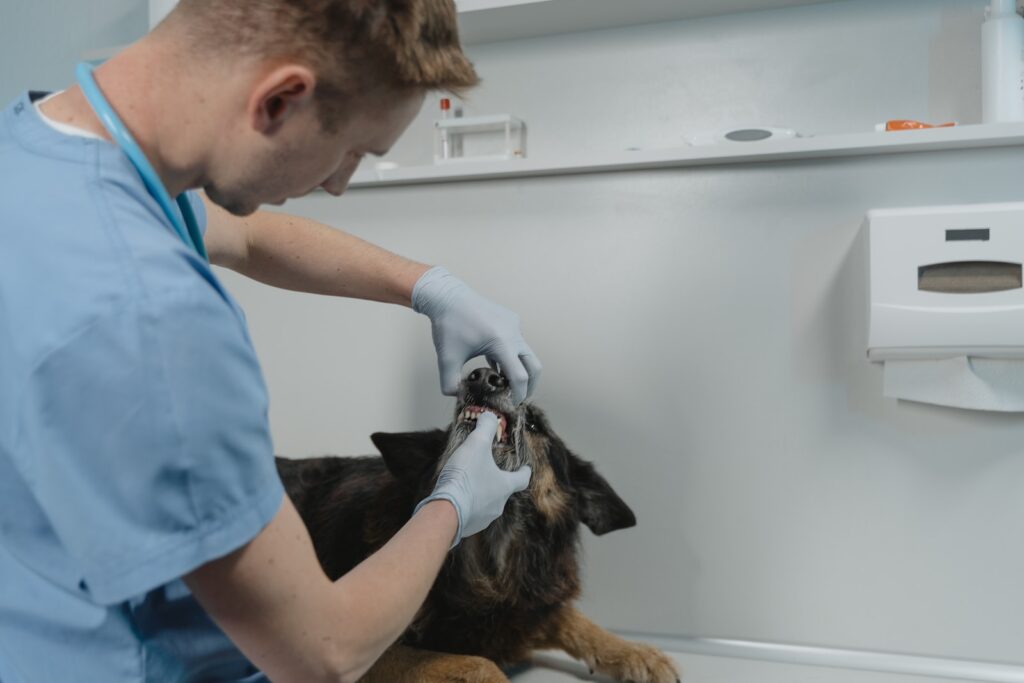Nourishing Your German Shepherd Puppy: A Guide to the Best Food Choices
Welcoming a German Shepherd puppy into your home is akin to inviting boundless energy, unwavering loyalty, and an abundance of love. These intelligent and majestic dogs, known for their versatility as working dogs, loyal companions, and guardians, require special attention when it comes to their nutritional needs. Among the various aspects of puppy care, choosing the right food for your German Shepherd is a paramount decision that can significantly impact their growth, development, and overall well-being.
As you embark on this exciting journey of canine companionship, it’s essential to recognize that German Shepherd puppies have unique dietary requirements. This breed is characterized by its robust physique, boundless enthusiasm, and a propensity for joint-related concerns as they grow. To navigate the myriad options in the pet food aisle and make informed decisions for your puppy’s nutrition, it’s crucial to understand the key components that make up an optimal diet.

In this comprehensive guide, we will delve into the intricacies of selecting the best food for your German Shepherd puppy. From the significance of high-quality puppy food to the importance of protein, fats, and carbohydrates, we’ll unravel the secrets to fostering optimal health in your furry friend. Additionally, we’ll explore specific considerations such as joint support ingredients and the avoidance of harmful additives. Remember, nourishing your German Shepherd puppy is not just about filling their bowl; it’s about laying the foundation for a vibrant, healthy, and joy-filled life together. So, let’s embark on this nutritional journey to ensure your German Shepherd puppy thrives and flourishes under your care.
Table of Contents
High-Quality German Shepherd Puppy Food
When it comes to nourishing your German Shepherd puppy, the cornerstone of their diet should be high-quality puppy food. This isn’t merely a marketing term – it signifies a well-balanced blend of nutrients specifically tailored to meet the unique needs of a growing puppy. But what makes a puppy food “high-quality”?
Real Meat as the Primary Ingredient
Look for brands that prioritize real meat as the primary ingredient. This isn’t just a matter of preference; it’s a nutritional necessity. Real meat, such as chicken, beef, lamb, or fish, provides the essential proteins that are the building blocks of your puppy’s developing muscles. These proteins are vital for the rapid growth and development that characterizes the early stages of a German Shepherd’s life.
Formulated for Energy Requirements
German Shepherd puppies are known for their boundless energy and playfulness. A high-quality puppy food should be formulated to meet these energy requirements. Check the packaging for information on calories per serving and ensure that it aligns with the needs of your specific puppy. This balance is crucial – too few calories may hinder proper growth, while excessive calories can lead to unwanted weight gain, especially in a breed prone to joint issues.
Nutrient-Rich Formulation
Beyond just calories, a quality puppy food should be rich in essential nutrients. These include vitamins, minerals, and antioxidants that support your puppy’s immune system, vision, and cognitive function. As German Shepherds are known for their intelligence, a well-nourished brain is key to unlocking their full potential.
Avoid Fillers and By-Products
Turn a discerning eye to the ingredient list. Avoid puppy foods that rely heavily on fillers like corn or soy, as these offer minimal nutritional value and can be harder for your puppy to digest. Likewise, steer clear of by-products, as they may not provide the same quality of nutrition as whole, identifiable ingredients.
By choosing a high-quality puppy food, you’re not just ensuring that your German Shepherd gets the sustenance they need – you’re investing in their long-term health and vitality. Remember, the early stages of a puppy’s life lay the foundation for their entire future, and providing them with the best possible nutrition is a proactive step towards a happy, healthy, and thriving companion.
Protein-Rich Diet
If high-quality puppy food forms the foundation of your German Shepherd puppy’s diet, then protein is the key structural element that fortifies that foundation. German Shepherds, known for their athleticism and strength, require a protein-rich diet to support their rapid growth, muscle development, and overall health.

The Crucial Role of Protein
Proteins are composed of amino acids, which serve as the building blocks for tissues, muscles, organs, and enzymes in your puppy’s body. During the early stages of a German Shepherd’s life, when growth is at its peak, a robust intake of protein is essential. Aim for a puppy food that contains at least 20-30% protein to ensure your furry friend receives the necessary nutrients to thrive.
Quality Protein Sources
Not all proteins are created equal, and the source matters. Look for puppy foods with real meat sources listed prominently in the ingredients, such as chicken, beef, lamb, or fish. These animal-based proteins provide a complete amino acid profile, which is crucial for the optimal development of your puppy’s muscles and tissues.
Immune System Support
Beyond muscle development, proteins play a vital role in supporting your puppy’s immune system. A strong immune system is essential for warding off illnesses and ensuring your German Shepherd puppy enjoys a healthy and active lifestyle. The right amount of protein contributes to a well-functioning immune response, keeping common health issues at bay.
Balancing Protein Intake
While protein is essential, it’s crucial to strike a balance. Excessive protein levels can strain your puppy’s developing kidneys, leading to potential health issues. Consult with your veterinarian to determine the appropriate protein content for your German Shepherd based on factors such as weight, age, and activity level.
By prioritizing a protein-rich diet, you’re not just fueling your German Shepherd puppy’s exuberance – you’re providing the nutritional support needed for them to grow into a strong, agile, and thriving adult dog. As you navigate the sea of puppy food options, keep in mind that a well-balanced diet, rich in quality proteins, is a key ingredient for a vibrant and happy canine companion.
Balanced Fat Content
While proteins are the muscle builders, fats play a pivotal role as the energy reserves in your German Shepherd puppy’s diet. A balanced fat content is essential for their overall health, providing a concentrated source of energy and contributing to various physiological functions.
Energy Source for Growth and Activity
Growing German Shepherd puppies are a bundle of energy, constantly on the move and exploring their surroundings. Fats serve as a dense source of calories, supplying the energy needed to fuel their rapid growth, support their playfulness, and maintain their overall vitality. Look for puppy foods that contain a moderate amount of fat – typically around 8-12%.
Omega-3 and Omega-6 Fatty Acids
Not all fats are created equal, and it’s the type of fat that matters. Omega-3 and omega-6 fatty acids are particularly beneficial for your puppy’s health. These essential fatty acids contribute to the development of a lustrous coat, support skin health, and play a crucial role in cognitive development. A shiny coat is not just aesthetically pleasing; it’s an outward sign of your puppy’s internal well-being.
Caution: Watch the Calories
While fats are crucial, it’s important not to overdo it. Excessive fat intake can lead to obesity, a significant concern for German Shepherds prone to joint issues. Keep a close eye on the total caloric content of the food, and ensure it aligns with your puppy’s specific needs. If in doubt, consult with your veterinarian to determine the optimal fat intake for your growing companion.
Supporting Cognitive Function
The omega-3 fatty acids, specifically DHA (docosahexaenoic acid), are vital for brain development. As German Shepherds are known for their intelligence and trainability, providing a diet rich in DHA can contribute to enhanced cognitive function, aiding in training sessions and overall mental acuity.
By prioritizing a balanced fat content in your German Shepherd puppy’s diet, you’re not just providing energy – you’re supporting their growth, enhancing their coat health, and nurturing their cognitive abilities. Remember, a well-fed puppy is a happy puppy, and the right balance of fats contributes significantly to the holistic well-being of your furry friend.
Digestible Carbohydrates:
While proteins and fats take the spotlight in your German Shepherd puppy’s diet, carbohydrates play a crucial supporting role, offering a readily available source of energy and contributing to overall digestive health.
Energy for Playfulness
Carbohydrates serve as a quick and efficient energy source, providing the fuel your puppy needs for their boundless playfulness and daily activities. Look for puppy foods that include wholesome carbohydrates like whole grains, brown rice, and sweet potatoes. These complex carbohydrates release energy steadily, preventing spikes and crashes in your puppy’s blood sugar levels.
Fiber for Digestive Health
Digestive health is paramount for any puppy, and the right balance of fiber in their diet can aid in digestion and prevent issues like constipation. Fiber-rich ingredients, such as vegetables and fruits, contribute to a healthy digestive system. However, it’s essential to strike a balance; too much fiber may lead to loose stools, while too little can result in constipation.
Nutrient-Dense Carbohydrates
Not all carbohydrates are created equal, and opting for nutrient-dense sources ensures your puppy receives essential vitamins and minerals. Vegetables like carrots, peas, and spinach, as well as fruits like blueberries and apples, not only provide carbohydrates but also contribute valuable antioxidants and phytochemicals that support your puppy’s overall well-being.
Avoiding Fillers
Just as with proteins, be cautious about fillers in the form of cheap carbohydrates like corn and soy. While these may contribute to the overall carbohydrate content of the food, they may lack the nutritional value and digestibility of higher-quality sources.
Incorporating digestible carbohydrates into your German Shepherd puppy’s diet ensures they have the energy needed for their active lifestyle and promotes a healthy digestive system. Remember, a balanced diet that includes a mix of proteins, fats, and carbohydrates sets the stage for your puppy to thrive and enjoy their journey to adulthood. If you have concerns or questions about the specific carbohydrate needs of your puppy, consult with your veterinarian for personalized guidance.
Joint Support Ingredients
German Shepherds are known for their impressive physique, but with their size and activity level comes a higher risk of joint issues, particularly as they age. To proactively address this concern, it’s essential to choose a puppy food that includes ingredients supporting joint health.

Glucosamine and Chondroitin Sulfate
Two key components for joint health are glucosamine and chondroitin sulfate. These natural compounds play a crucial role in maintaining the health of your puppy’s cartilage, which acts as a cushion between their joints. As your German Shepherd grows, ensuring that their joints are well-supported becomes increasingly important. Look for puppy foods that explicitly mention the inclusion of glucosamine and chondroitin sulfate in their formulation.
Preventing Future Mobility Issues
German Shepherds are predisposed to hip dysplasia and other joint-related problems. While genetics can play a role, proper nutrition can make a significant difference in preventing or mitigating these issues. Including joint-supporting ingredients in your puppy’s diet lays the foundation for healthy joints, reducing the risk of mobility problems as they age.
Balanced Calcium and Phosphorus Levels
Maintaining the right balance of calcium and phosphorus is also critical for proper bone development. Too much or too little of these minerals can impact bone density and structure, affecting your puppy’s overall skeletal health. High-quality puppy foods are formulated to provide the correct ratio of calcium to phosphorus, supporting healthy bone growth without overloading their developing systems.
Consulting with Your Veterinarian
While many high-quality puppy foods include joint-support ingredients, it’s essential to consider your individual puppy’s needs. Consulting with your veterinarian can provide valuable insights into the specific requirements based on your German Shepherd’s age, weight, and breed-related factors. They can help tailor a diet that addresses your puppy’s unique needs, ensuring a proactive approach to joint health.
By selecting a puppy food with joint-supporting ingredients, you’re taking a proactive step to safeguard your German Shepherd puppy’s mobility and overall well-being. Investing in their joint health early on can contribute to a more active, comfortable, and joyful life as they mature into adulthood.
Avoid Harmful Additives
In the quest for the best food for your German Shepherd puppy, it’s crucial to scrutinize the ingredient list for any harmful additives that could compromise their health. While the primary focus is on providing essential nutrients, steering clear of artificial preservatives, colors, and flavors is equally important for your puppy’s overall well-being.
Artificial Preservatives
Many commercial pet foods use artificial preservatives such as BHA, BHT, and ethoxyquin to extend shelf life. While these additives are effective in preventing spoilage, they have been associated with various health concerns. Opt for puppy foods that use natural preservatives like vitamin E (tocopherols) or vitamin C (ascorbic acid), which are safer alternatives for your growing German Shepherd.
Artificial Colors and Flavors
Artificial colors and flavors add no nutritional value to your puppy’s diet and may even lead to adverse reactions. Dogs are not as visually influenced by the color of their food as humans, so choosing a puppy food that skips unnecessary artificial enhancements is a wise decision. Stick to natural, wholesome ingredients to ensure your puppy’s food is as close to its natural state as possible.
Allergen Triggers
Certain additives can act as allergens, triggering sensitivities or allergies in your German Shepherd puppy. Corn, wheat, and soy are common allergens found in some commercial dog foods. Choose puppy foods that avoid these potential triggers, especially if your puppy shows signs of allergies, such as itching, gastrointestinal issues, or skin irritations.
Reading the Ingredient List
Become adept at reading and understanding the ingredient list on the puppy food packaging. Ingredients are typically listed in descending order by weight, with the primary components listed first. Ensure that the main ingredients are high-quality proteins, fats, and carbohydrates, and that any additives are minimal and natural.
The Impact of Artificial Additives
Artificial additives have been linked to various health issues in dogs, ranging from skin irritations and allergies to more serious concerns. By opting for a puppy food free from harmful additives, you’re making a conscious choice to prioritize your German Shepherd’s health and reduce the risk of adverse reactions.
In conclusion, choosing a puppy food that avoids harmful additives is a fundamental aspect of responsible pet care. It’s an investment in your German Shepherd puppy’s long-term health, ensuring they receive a nutritionally sound and wholesome diet that contributes to their growth, vitality, and happiness.
Consult with Your Veterinarian
While general guidelines and recommendations can provide a solid foundation for selecting the best food for your German Shepherd puppy, every dog is unique. Factors such as individual health, weight, age, and breed-specific considerations can influence dietary requirements. Therefore, consulting with your veterinarian is a crucial step in ensuring your puppy receives a tailored and optimal nutrition plan.

Personalized Nutritional Guidance
Veterinarians are trained to assess your puppy’s specific needs and can offer personalized nutritional guidance based on their individual characteristics. They can help you determine the ideal balance of proteins, fats, and carbohydrates, taking into account factors such as your puppy’s current health, growth rate, and energy level.
Addressing Breed-Specific Concerns
German Shepherds, like any breed, may have unique health considerations. For instance, their predisposition to joint issues requires a careful examination of diet to support skeletal development. Your veterinarian can provide insights into specific nutrients, such as glucosamine and chondroitin, that are beneficial for joint health in German Shepherds.
Monitoring Growth and Development
Puppyhood is a critical phase of growth, and nutritional needs evolve as your German Shepherd develops. Regular check-ups with your veterinarian allow for ongoing monitoring of your puppy’s growth and weight. Adjustments to their diet can be made based on these assessments, ensuring they receive the appropriate nutrients at each stage of their development.
Dietary Adjustments as Needed
Your veterinarian can help identify any signs of dietary deficiencies or excesses, allowing for prompt adjustments to your puppy’s food if necessary. This proactive approach can prevent potential health issues and support your puppy’s overall well-being.
Preventing Health Issues
Early detection and prevention of health issues through proper nutrition are essential for the long-term health of your German Shepherd. Your veterinarian can advise on specific dietary choices that may help mitigate breed-specific health concerns, ensuring your puppy enjoys a happy and healthy life.
In essence, consulting with your veterinarian is not just a one-time event but an ongoing partnership in your puppy’s health journey. Regular veterinary check-ups, open communication about your puppy’s diet, and a willingness to make adjustments as needed will contribute to the well-being and longevity of your beloved German Shepherd. Remember, your veterinarian is your best ally in providing the optimal care and nutrition your puppy deserves.
For more details read Doodle Grooming 101: Essential Tips for a Healthy Coat
Thriving Tails: A Nutritional Journey to Wellness for Your German Shepherd Puppy
In conclusion, nourishing your German Shepherd puppy goes beyond merely filling a food bowl. It’s a thoughtful and proactive commitment to their health, growth, and overall well-being. As you embark on this journey of canine companionship, the importance of selecting the right food cannot be overstated. A high-quality puppy food that prioritizes real meat, balanced protein, fats, and carbohydrates, and avoids harmful additives sets the stage for a healthy and happy life for your furry friend.
Consider the unique needs of your German Shepherd, understanding that their breed characteristics, such as size, energy level, and predisposition to certain health issues, necessitate a tailored approach to nutrition. Joint support ingredients, a watchful eye on artificial additives, and regular consultations with your veterinarian ensure that you’re not only meeting but exceeding your puppy’s nutritional requirements.
Remember that puppyhood is a critical phase of growth, and the choices you make now will resonate throughout your German Shepherd’s life. Investing in their nutrition is an investment in their future vitality, longevity, and the joy they bring to your household. The journey of caring for a German Shepherd is a shared one, and by prioritizing their nutrition, you’re laying the foundation for a strong and lasting bond.
Ultimately, consult with your veterinarian regularly to fine-tune your puppy’s diet, address specific concerns, and ensure they are on the path to optimal health. Your veterinarian is not just a healthcare provider; they are a partner in the well-being of your German Shepherd, offering guidance, expertise, and support throughout the various stages of their growth and development.
As you witness your German Shepherd puppy thrive, their vibrant coat shining, their energy boundless, and their tail wagging in delight, you’ll know that the time and care you’ve invested in their nutrition have contributed to a life filled with health, happiness, and the unmatched companionship of a loyal and thriving canine friend.

